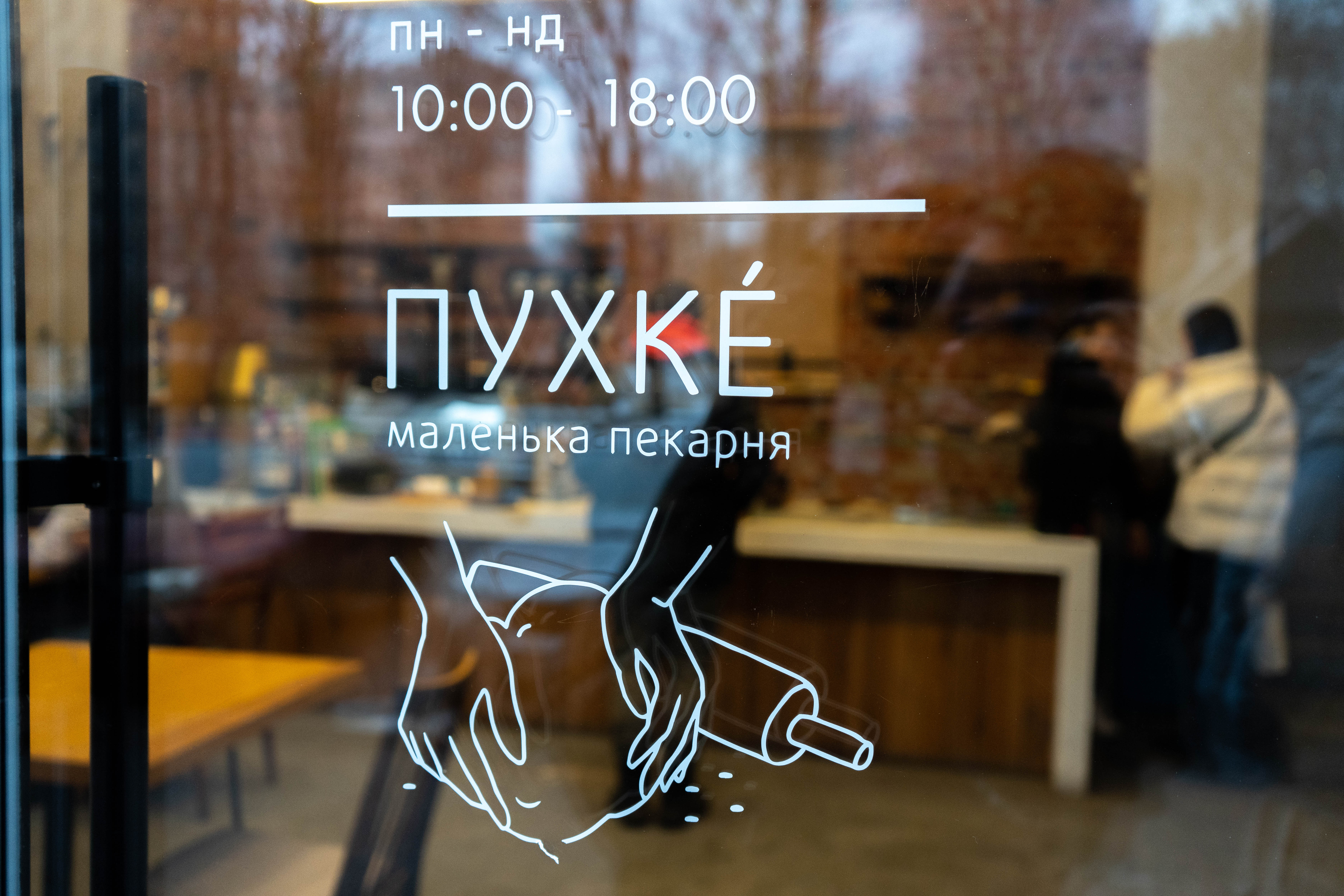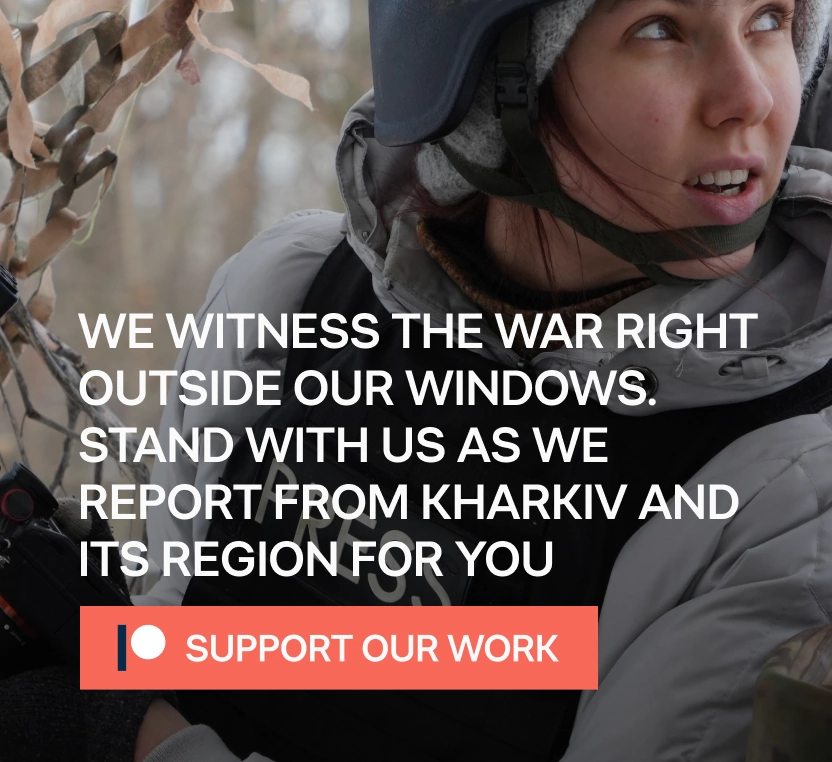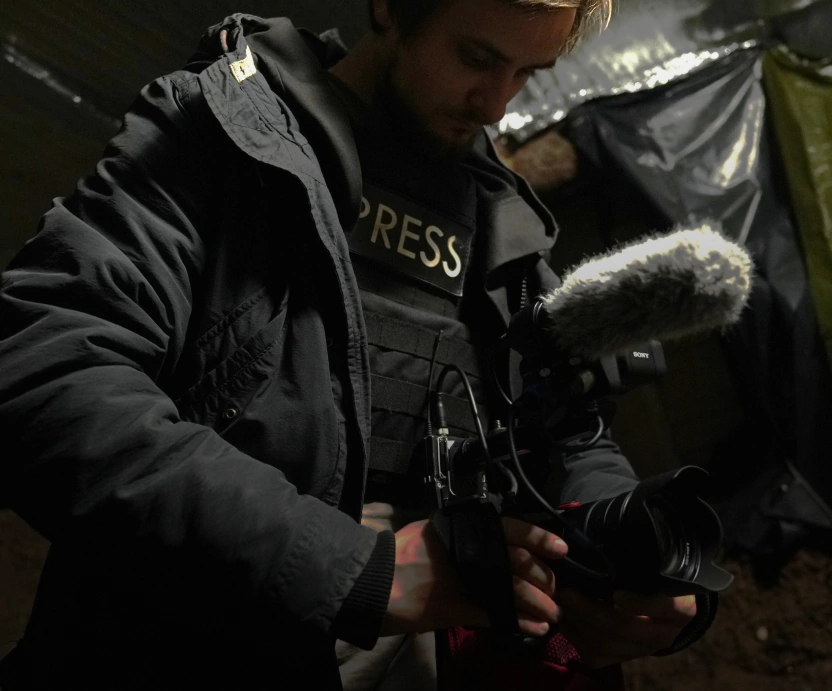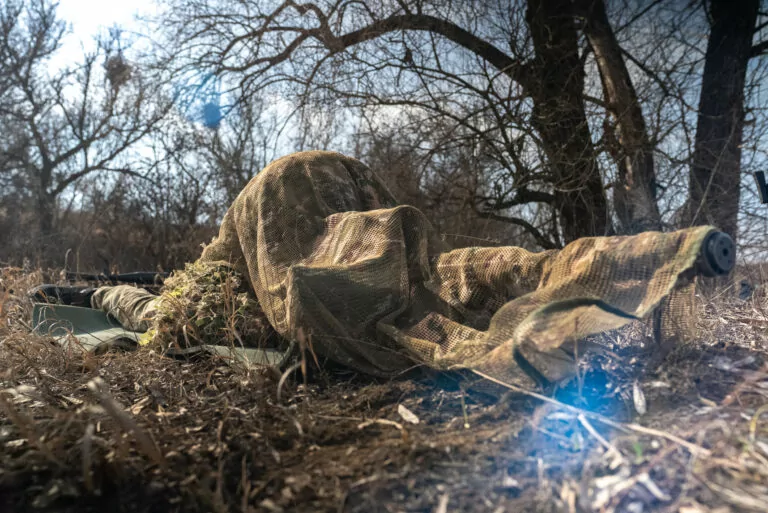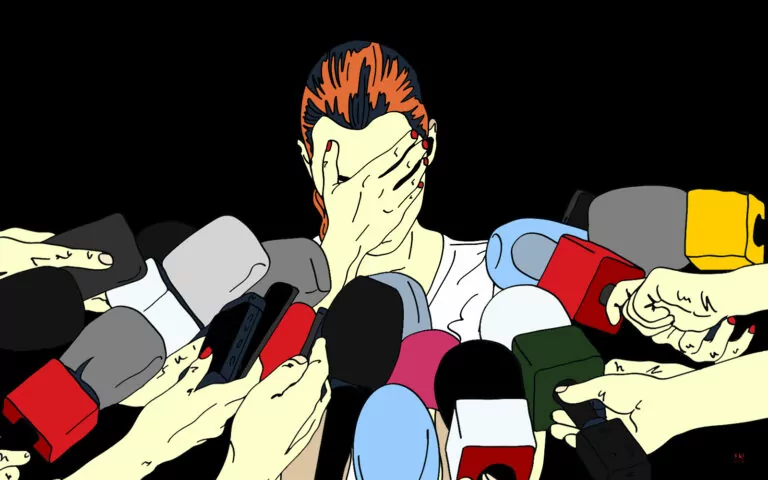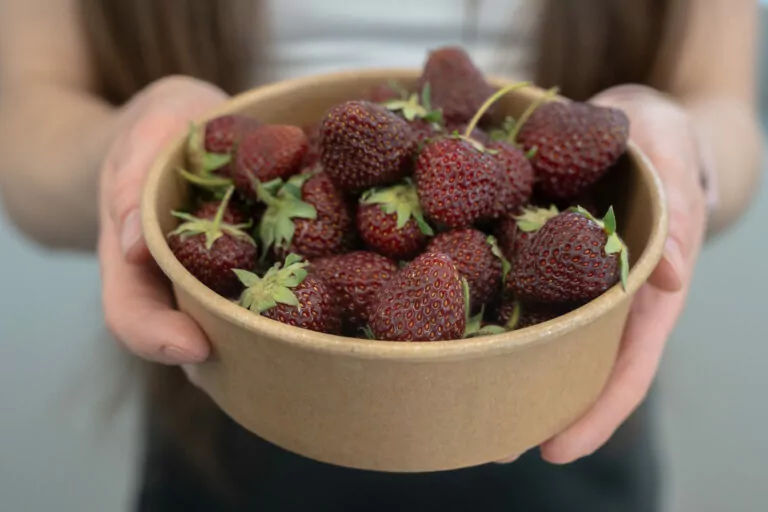The full-scale war of the Russian Federation against our country has already lasted for a year. It has significantly affected Ukrainian small and medium-sized businesses. Someone relocated to safer regions, was forced to reduce capacity, lay off workers, and often even change the business domain in the new reality.
Kharkiv keeps withstanding constant missile strikes steadily, and business similarly adapts to challenging conditions. We talked to Tetiana Siniuhina about entrepreneurs’ challenges and their vision of the city’s future.
Tetiana Siniuhina – the foundress of Pouhque
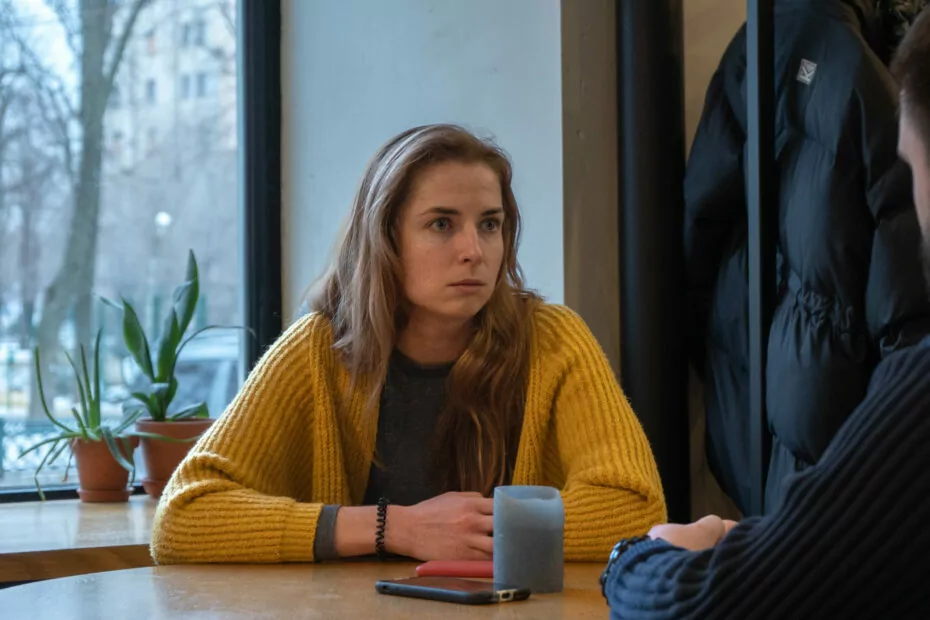
— I filled out the papers in March 2020, five days before the lockdown. We started functioning during the lockdown already. We put the first croissants on the shop counter on March 5, 2020. That is, we’ve been working on this project together with Pakufuda [a partner cafe located behind the Derzhprom building in Kharkiv – ed.] for almost three years.
In 2019 I went on a vacation to Paris for the first time. At that moment, I had working experience as a barista, confectioner, and chef. That’s when I tasted a simple everyday delicious pastry made of good-quality products for the first time. I understood that this was what I wanted to do. Opposite to the items sold in our cafes, all the products were natural and tasty even without the toppings. I became obsessed with this and opened my bakery in half a year.
At first, we experimented with the assortment. We brought it to the shop counter and observed who liked it and what items became popular. We constantly thought about our values: natural and quality products, people approach, the sense of coziness.
When the pandemic began, all the establishments in Kharkiv were closed. We had the time and opportunity to add something and to think over our concept. We made our delivery, baked, and delivered our pastry by bicycle. Word of mouth spread the information about us, and in May-June, we already had small queues. We set the table near the door and gave pastries to the people of Kharkiv.
— Can we say that starting from the opening during the pandemic and to the point right before the start of a full-scale invasion, your business grew little by little?
Yes. The pandemic became an opportunity to think through and develop our business rather than a challenge.
— Does the process of baking bread at Pouhque differ from the other bakeries?
It is the story of sourdough bread and rolls. Sourdough dough is a product gradually entering our market from the USA and Europe. It’s a trend now, but it took a back seat during the wars [of the previous century — ed.] since a quicker cooking process appeared. People did not have a lot of time to ferment the bread. Later they started to recall the old tradition of cooking bread again when it is fermented on homemade sourdough from flour and water. Nothing odd and industrial — we liked the idea of such a product. Sourdough products need a lot of time.
«We are about quality and taste, not about making it fast, cheap, and sold in large volumes.»
We have sourdough starters grown by ourselves. They already have three years, and some have a little less. It takes time for them to raise the dough to give it a taste so that the products are loose. It takes 24-36, sometimes 72 hours—a long fermentation process. We also use yeast; then, the cooking takes less time. We are about quality and taste rather than about making it fast, cheap, and sold in large volumes.
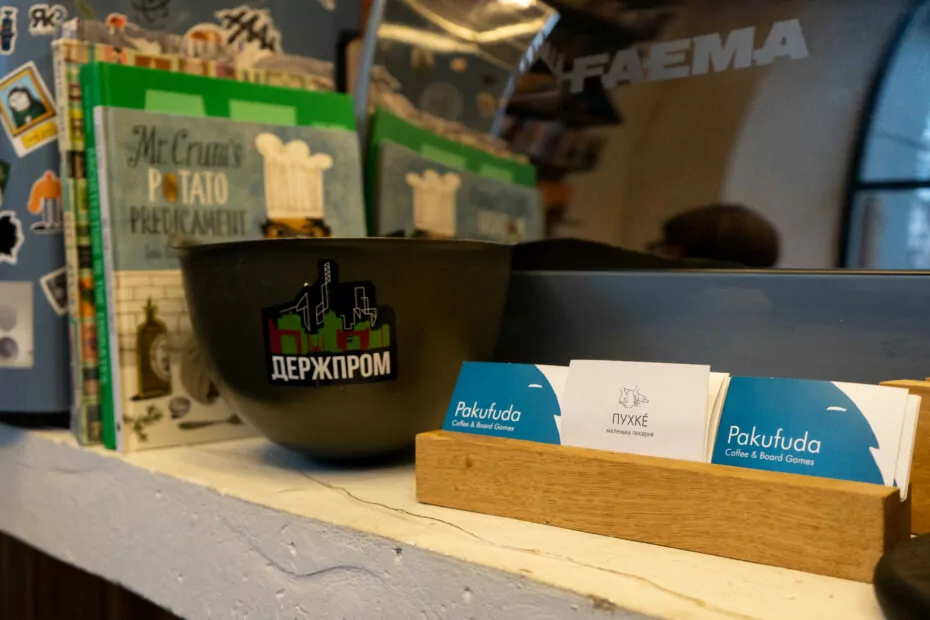
— Please tell me why you chose the name «Pouhque»?
— We wanted to have a name in our language so that it was not borrowed from English and reflected the values of the project. Pouhque is a capacious, native Ukrainian and a gentle word. [A Ukrainian word «pukhké» means «loose» in English – ed.].
Please become our patron to develop Gwara Media together. Join the community to receive exclusive content from our photo reporters and get access to the discussion with our editors!
The bakery during the full-scale invasion
— Did you have the plan to save the business right before the invasion?
— I was a person who was very far from political news, and I got to know about possible escalation at the end of January 2022, when my partner said: we should have a plan of action because troops surrounded us from several sides. He asked me to consider what we should do with the business and the joint project with partners.
I even did not want to talk about that for a long time; I did not believe it. I could not imagine that it was ever possible to take such actions, and I was sure: it was such a silly idea of Russia that it would just not happen. I refused to talk about that for a long time. I dared to speak to Lilia and Anton (co-owners of Pakufuda), and we had a match in main points about what we’ll do in case of a sudden attack. We discussed what we would do with the premises and the team – of course, we are closing because it is the safety of the team and our guests.
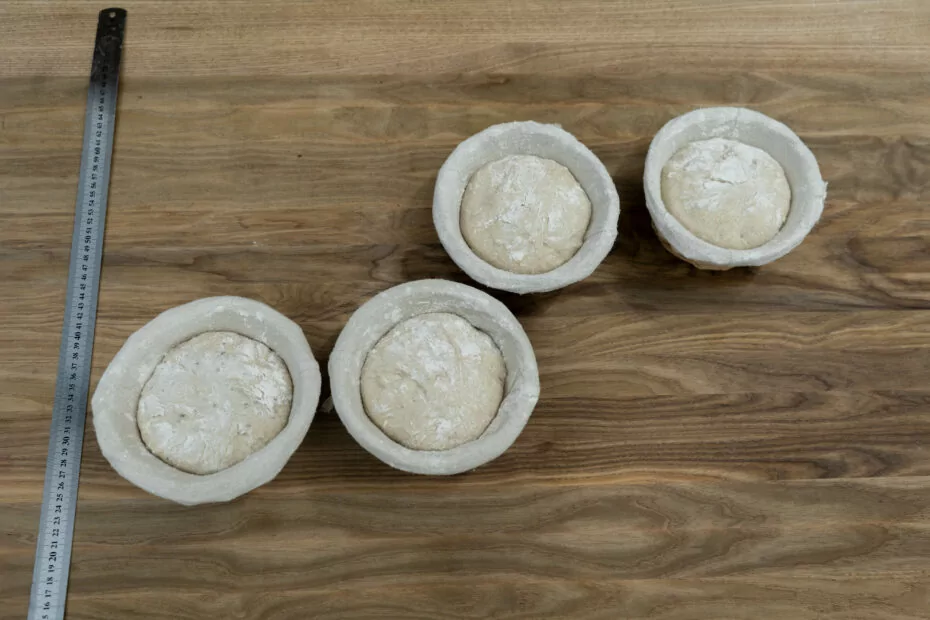
We wanted to hide our beautiful premises with large windows in case of occupation. It’s rather difficult — it is evident from the street. On the evening of Feb. 23, my partner and I discussed one more time where that red flag was, after which we left the city. And if, say, Russian troops cross the border, we close the premises and leave Kharkiv.
At 5 a.m. on Feb. 24, I was awakened and was going to the shift. My partner saw that the invasion had begun, and I went to bake buns. He barely persuaded me to fill up the car — only then I understood the situation when I saw the queued cars at 5:30 a.m. The gas station employee, with trembling hands, tried to fuel up our vehicle. We closed the premises and painted over the windows as best we could.
We thought only about the closure so that looters or occupiers don’t do anything. It looked like global repair work was happening here, so we painted everything white.
— So you didn’t think you could take the equipment out to save it?
— We were sure, after all: if an invasion began, it would not be serious, and everything would pass quickly. We expected to go to our parents in Kremenchuk and spend the most terrible few days there.
— What did you do after you left Kharkiv?
— After Kremenchuk, we moved to our friends in Ivano-Frankivsk. We could not do anything the first week and later due to stress and anxiety. We did not want anything but to read the news. That’s why I understood that we should go and work. Firstly, just to distract ourselves, and secondly, because since the evening of Feb. 24, our bakery became an improvised shelter because it was located in the basement. There were my bakers, who had already been baking bread for citizens for three days. I had to help myself and them. And I went to work in «Delikatsiia» [cafe and pastry shop in Ivano-Frankivsk – ed.]; I’ve worked there for almost two months. I returned to Kharkiv in the first days of June.
— Tell us, please, about your bakers, who stayed in the city and began to bake bread for Kharkiv citizens on their own. Was it their idea?
— All that was spontaneous. We left the keys for our friends who live near the bakery. They refused to leave because they had to look after a sick and blind grandfather and relative. And we had plenty of products and all the conditions for cooking. Thanks to them, many people gathered here, including a girl who worked for me. They began to address them and me. And I said to Ksiu she could do anything she wanted.
It was not under my management; it was rather under her initiative. She gathered a team of bakers, and starting from the second day of the war, they began to ferment and bake bread, giving it out to volunteers. There was no bread in Kharkiv during the first days. We collected requests that have been transmitted to us. And I only advised on a distance. The team of bakers here was organized on its own.
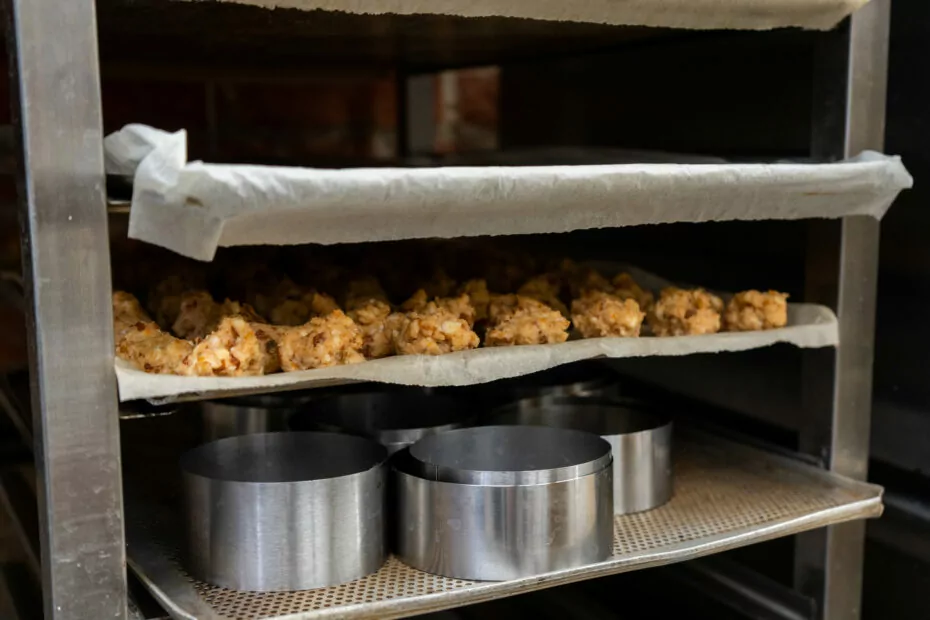
— At first, you helped residents and volunteers, but somewhat later, the bakery started helping military service members. How did it start, and how does it go now?
— In Frankivsk, we met a lot of acquaintances. These were Kharkiv residents who also evacuated. Among those people, there was a family from Cryza Store – this is a branded clothes they sew in Kharkiv, Vika and Denys’s project. We met with them and just complained about each other’s lives. One day Vika said that many raisins came with humanitarian aid.
Then an idea appeared to make pastry with raisins and send it to the Izium direction. As “Izium” means raisins. We wanted to support the place that was under occupation. At that moment, we were still in Frankivsk but were already planning the return to Kharkiv.
«I stopped counting when we handed over more than 500 kilograms of cookies».
I described this idea to my team — that’s how we started making raisin cookies. At first, we sent them to the residents of the villages near Izium. We also sent some raisin cookies to military service members. This way, we got to know guys from the 92nd brigade. We understood they needed simple goodies more than severe military equipment since they had regular nutrition: hot and canned food, but no sweets. Military personnel was very grateful for that. We started to produce more and more pastry and give it to the 92nd brigade.
They then gave it further to the soldiers of the National Guard and territorial defense. We do not know where the cookies were transmitted further, but we know for sure: that way, legends about our cookies were spread. It was more relevant for the military than civilians, who received a lot of humanitarian aid.
When they liberated Kharkiv Oblast in summer-autumn, we did not know about that at first. Then the military men said we could expect good news in a few weeks. We cooked a lot for them — I don’t even know how much we cooked. I stopped counting when we cooked over 500 kilograms per month. Maybe even more. My team did as much as it could.
— Can you imagine the amount of your help?
— We had many accompanying problems after reopening the bakery. We did not keep any records. We just gave the cookies and worked on a volunteer basis.
— What challenges did you face when you opened in August when the war was already going on?
— A lot of people from our team left. Those who served, keep serving now. Some remained, and some left. We keep in touch with those who are not in Kharkiv. Now the team is 4-5 times smaller. We had about 22 people as of January 2022, and now we have up to ten. New team members appeared, who closed the demand.
— How have your revenue and attendance changed?
The city does not need board games, pastries, or coffee. But, in comparison with August, Kharkiv comes alive in February.
In my project and Pakufuda, the profit is a third of the pre-war level. We’ll see how it goes in spring. We feel the number of people in the city increasing since November. Kharkiv lives! In contrast to Kyiv and Lviv, everything is slow here. Life and dynamics are here, but the volumes differ from before the war.
— War does not make people more prosperous. Thus, the question is whether or not the average check has changed.
— People who cannot afford it do not come to us. As for 30% of pre-war income, we cannot clearly indicate the reason. It may depend on the number of people in the city or on the fact that the citizens’ solvency decreased. Eating a croissant is not an obligatory thing to survive. Maybe, that’s it, but I feel the price increase for products, especially quality ones.
We were forced to raise the prices several times, but gradually. We added the payments we had to pay as a business. I didn’t notice that rising prices affected the average check. If people understand that it’s essential for them to buy a bun to support themselves in these conditions, they will do that, even if it increases in price by five hryvnias.
— Has the price increased significantly compared to pre-war times?
— I can’t say for sure, but about 15-20%. We never were business in the ordinary meaning of this word. We try to keep the prices down and not put a significant markup because we understand our conditions. We understand that many people volunteer and that not everyone has a job.
That may be why we have certain financial issues, but we are ready to sacrifice profit to support people. When we opened, we said to ourselves: if we can create several jobs, if Kharkiv residents, military personnel, and volunteers come here, and at the same time, we break even, it will be the best result for us. We expected that we would have no profits. We don’t aim to earn a lot in these conditions.
«We have not to be afraid, but to proactively go to the elections. We need to take the initiative in our own hands.».
— Do you manage to break even?
— Yes, we survive. Sometimes more difficult, sometimes easier. We had financial problems — utility debts accrued for the entire time the facility was not working. We had to give additional funds, but currently, we break even. It was hard.
All utility bills were charged, and heating was available all the months. Water and electricity were also metered. People lived here, and powerful furnaces worked. All the payment bills came, and we saw that the utilities had been charging for the whole time.
It became a problem since we were refused a debt write-off. We were put in line for the electricity cut — we were forced to pay to keep doing our work rather than fighting the utility services. We opened a fundraiser on our social media pages: our guests donated the sum within three hours, which helped cover some of the debts! That’s why we managed to cope with it.
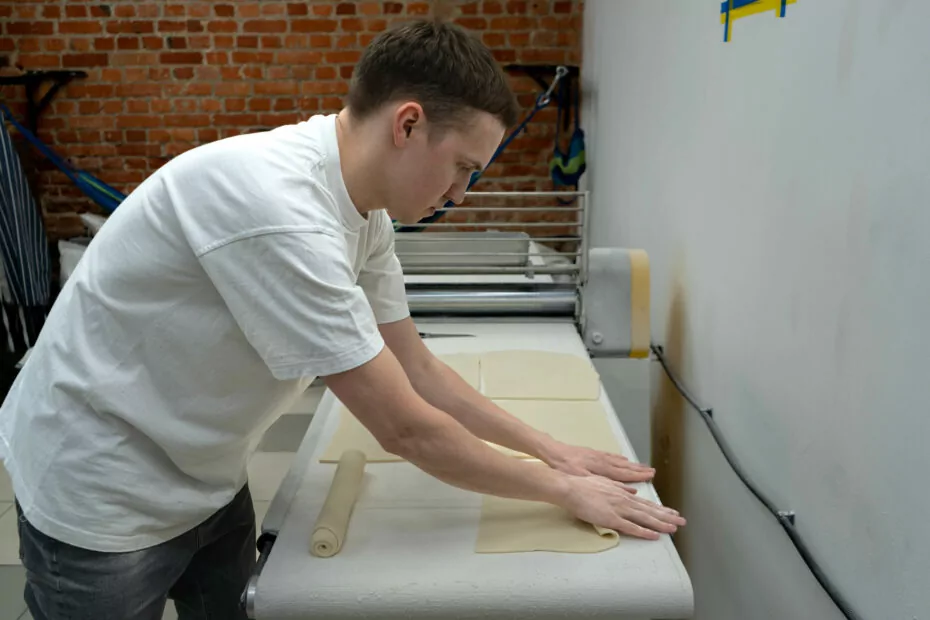
— It is more of a story about the fact that the local authorities should help small businesses in such difficult conditions. Has anyone come to you with an offer of help?
— It didn’t happen, and it hurts. For me, it’s the realization that good doesn’t always conquer evil. There are things where you do not always face justice. We also did not do everything dependent on us. We could have written more letters, turned to someone, sought connections, and tried to prove. We had a business that worked, volunteering, but we did not want them to close us. We were somewhat scared and did not do everything dependent on us.
«There is a big gap between Kharkiv citizens who carry something valuable and what the Kharkiv government highlights and does.»
Nevertheless, I think the Kharkiv government does not care about small and medium-sized businesses. I don’t quite understand whom we can address. The government should go to companies that pay taxes and support the city’s economy. It’s nonsense but it has been like that for a long time in Kharkiv. Such things do not occur all over Ukraine, and it’s painful.
Everyone who says it’s clean here, utility services work perfectly, and we have beautiful parks here is right. On the other side, all this seems to be done to create good street conditions and a loyal audience. But the government does not care about the citizens in any way. Small and medium-sized businesses are about developing and implementing ideas and creativity. The authorities do not oppose us; they just do not notice how we cry, wave our hands, and drown. I feel impotence and a lot of anger at this point.
The state and local authorities should help businesses. There is a big gap between Kharkiv citizens who bring something valuable and what the government highlights and does. These are two different universes; everyone lives in their bubble.
We should take the initiative, not in terms of criticizing the government but uniting with other activists, business owners, and media. We should talk more about it and come to an agreement instead of being silent, angry, or afraid.
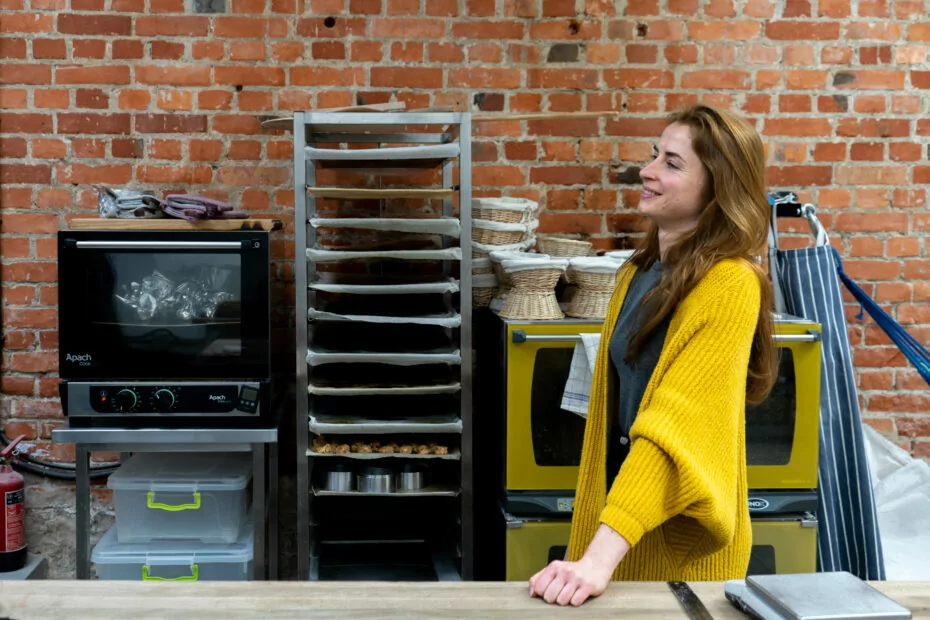
— Have you tried to find additional credit or grant opportunities?
— We wrote a request to receive a grant from USAID. Once we started again, we understood that the equipment for baking bread – the stoves – was worn out quite badly. They are relatively expensive and require replacement. We did not have money. Renewed equipment would increase the amount of production and positively impact our finances. As of now, we have not received a negative response; we are waiting. That was the only help that we sought.
When we passed cookies or bread to military service members, I understood that not all international institutions finance the support of the army, so we asked our subscribers and guests. Now we are balancing surviving in this place and waiting for the news about a possible escalation. In survival mode, I would say.
— A lot of Kharkiv businesses opened a social component in themselves. Some help the military, and some supply medicines for people from the liberated territories. Is it difficult for businesses? Do you plan to keep doing it further?
— I don’t think we, as a project, are doing enough to be called a social business. We help as much as we can. It seems that everyone is doing so little by little. It’s not a social business for me.
On the other hand, we’ve been a social business before 2022. These two projects (Pouhque and Pakufuda) were not about profit but values and cultural development, cultivating good products and services, and comfort.
We developed a culture of consuming quality products, fresh bread and pastry, and tasty coffee. It has just been less noticeable earlier.
Every day we saw media representatives, cultural figures, actors, and writers at our place. They were together with us; they are returning to Kharkiv now. We created the conditions on which the ecosystem of such people grew. It’s vital for the city’s future development and the country’s future growth.
— Do you have any plans in case of a re-invasion? Have you thought about that?
— No, we don’t have any plans. I have not crossed last year’s line. I am not ready to talk about that. We saw a lot, and all Kharkiv residents are prepared to make decisions more quickly. I hope we’ll have time to decide, and it will not be the situation when the occupants are already standing on the approaches to the city in the morning. Nevertheless, we have ideas about using the premises and a lot of friends among the volunteers. We are unwilling to think about it since we have barely reached a certain level now. We hope that we will be able to get back to the pre-war level and even surpass it.
— We believe that the war will end with a victory. It’s a matter of time before the city recovers. What are your plans for your business development in the future?
— I definitely want to keep baking buns, croissants, and bread. There are a few things like this in Kharkiv, actually, as well as in Ukraine. I want to produce more bread and create better conditions for small and medium-sized businesses for creative and cultural activities. I want to feel how young people bring new trends to the city and country. Youth is rather not about age but about mindset. We want to move away from Soviet stereotypes, this appearance of order and corruption. It does not give anything new. Instead, we want to bring value narratives to society.
Read more From Restaurateurs to Professional Volunteers: 24.02 Headquarters in Kharkiv
Interview by Denys Glushko
Translated by Anastasiia Shevtsova
Edited by Tetiana Fram
Follow us on Twitter, Instagram and LinkedIn for more news, stories, and field reports by Kharkiv journalists.
This publication was created with the support of the European Endowment for Democracy (EED). The publication’s content does not necessarily express the opinion of EED and is the sole subject of its authors, the editors of Gwara Media.
